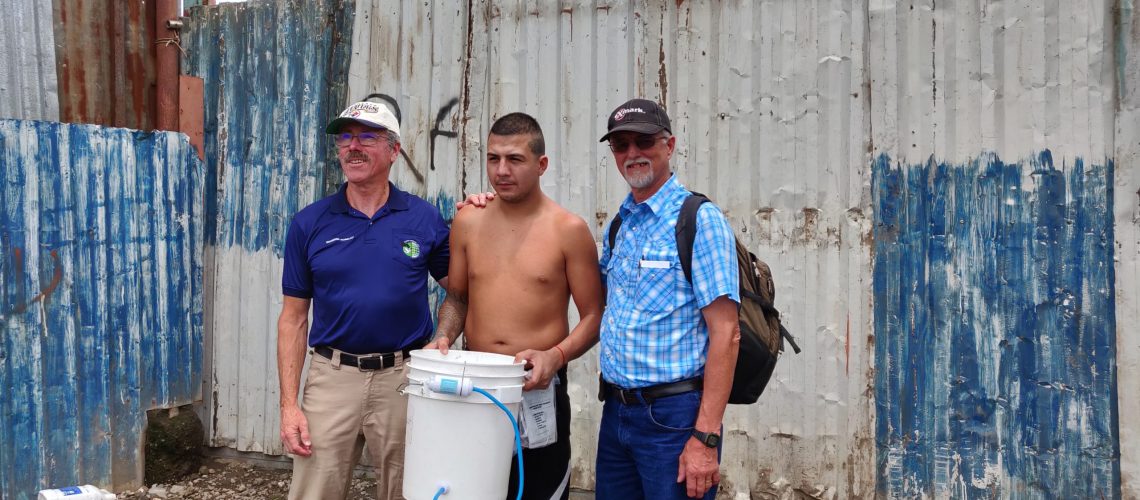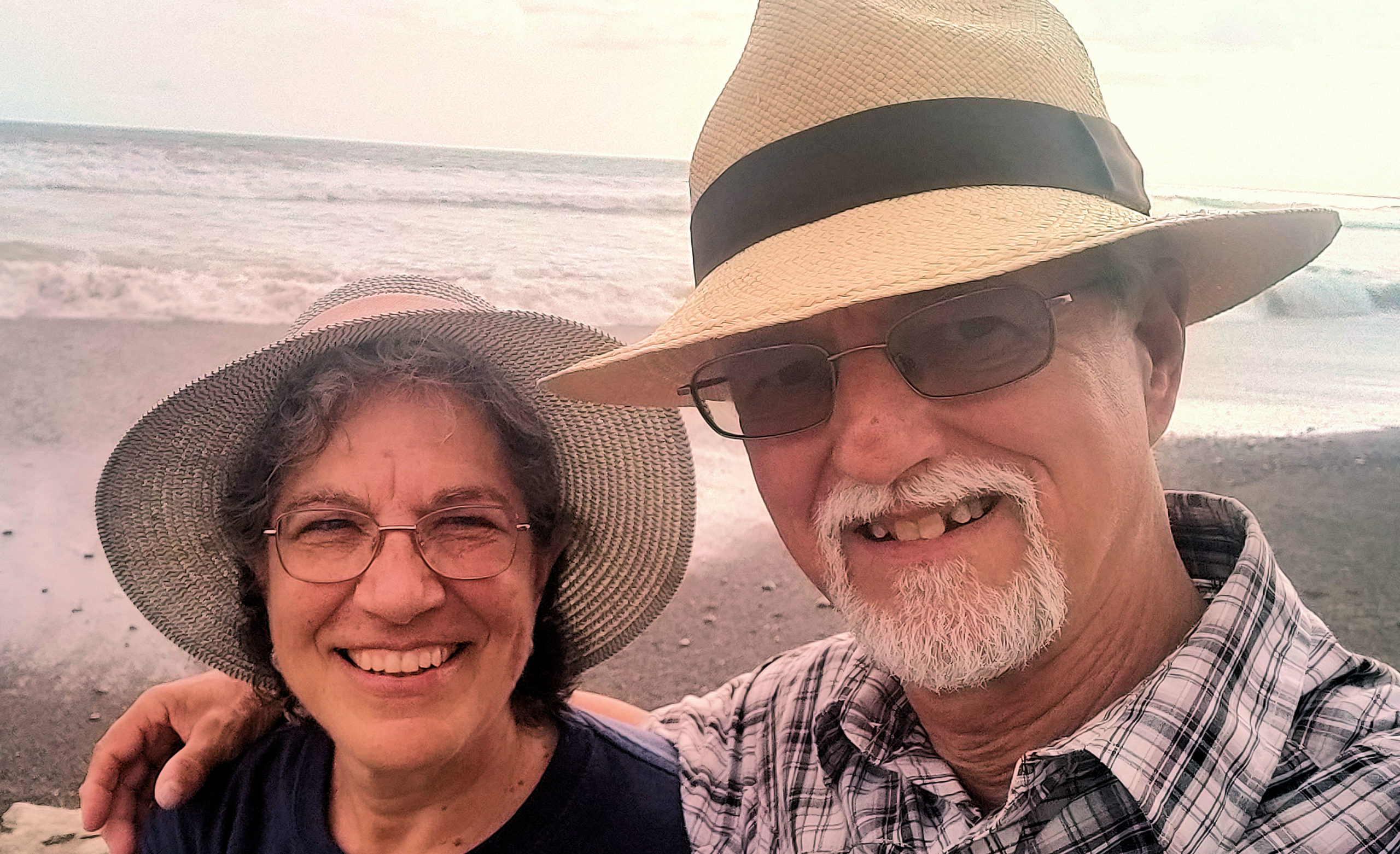 Meet Paraclete associate Cliff Peters. Some at Paraclete call him MacGyver. He’s also known as Approtechie, at least by his 33,000 subscribers on YouTube, and the people who have viewed his videos there over 14 million times.
Meet Paraclete associate Cliff Peters. Some at Paraclete call him MacGyver. He’s also known as Approtechie, at least by his 33,000 subscribers on YouTube, and the people who have viewed his videos there over 14 million times.
This Canadian farm boy has built numerous inventions—none of which he’s bothered to put through the patent process. Fame and fortune—those are far from his mind. With his creations made of old bicycle tires or a Coke bottle cap, he just wants to help people in ways they can help themselves.
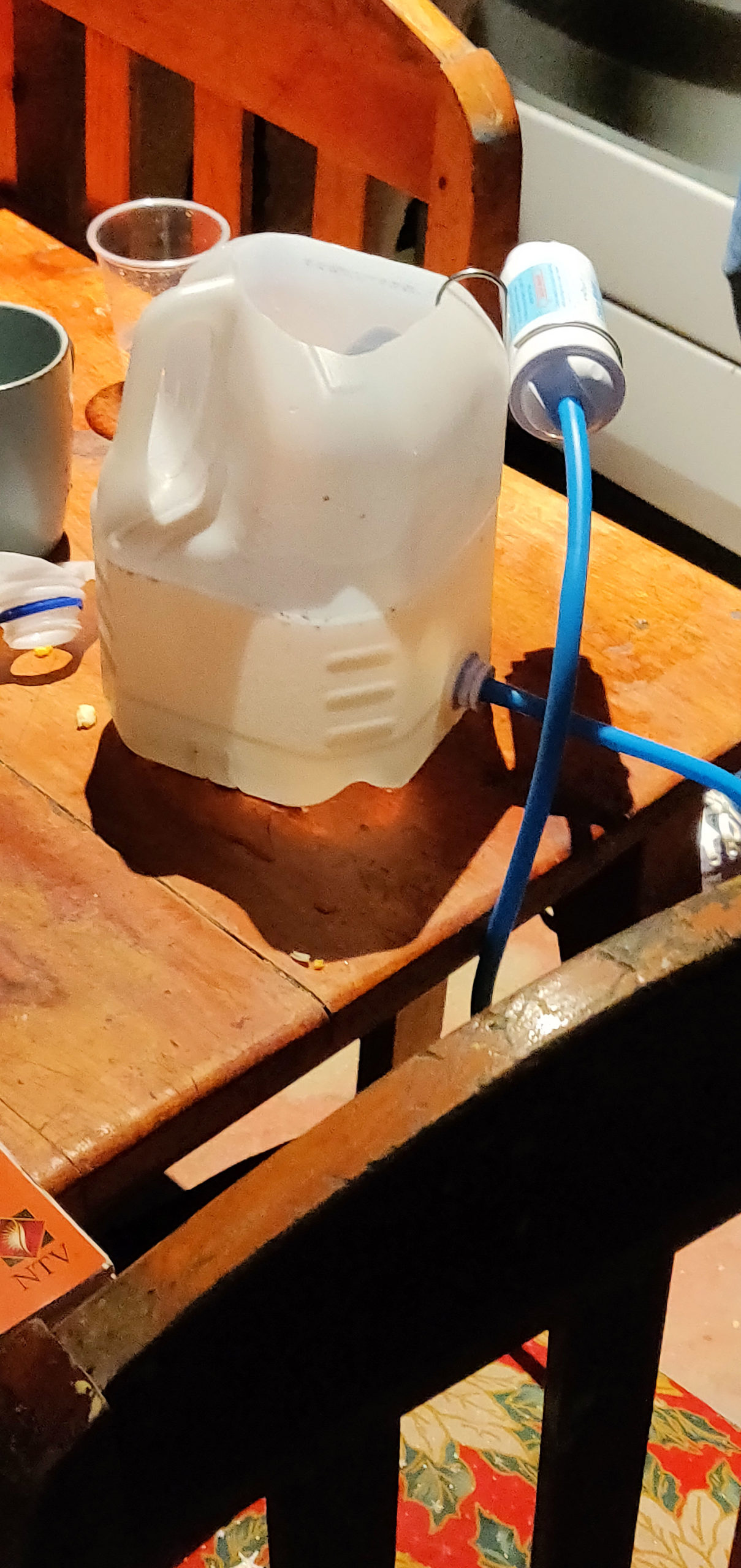
“Appropriate technology is sustainable, reproducible, simple, and inexpensive,” he said. “It’s easy to make things more complicated and more expensive. But try to make something simple and inexpensive using local parts, that’s sustainable and reproducible by the people themselves, that’s hard.”
Take Bolivia for example. One of their communities—the Highland Quechua Indians—were struggling with water issues. They had dug wells, but they were open, so the water was usually contaminated. The wells could be capped, but then how would they access the water with their buckets? Local hand pumps, the obvious solution, were expensive—about $300, or $1000 if you wanted a high-quality commercial pump—an exorbitant sum for this population.
“So, it took us two years of trying different ways of building a pump, using off-the-shelf parts,” said Peters. “I came up with a special piston valve using a piece of bicycle inner tube, and then the lower check valve used a coke bottle cap and a bit of rubber.”
The cost? Forty bucks for a typical installation. Or ten dollars for a DIY kit.
He also taught the villagers to copy his design and sell the pumps for profit, starting their own microenterprises.
And then there’s the village of Qhompuku where the Peters family lived for a time. The people had been getting their drinking water from an open waterhole, and experiencing many health problems. The men in the community and Peters worked together to install one of his pumps in a dry riverbed where the deep sand helped filter the water.
T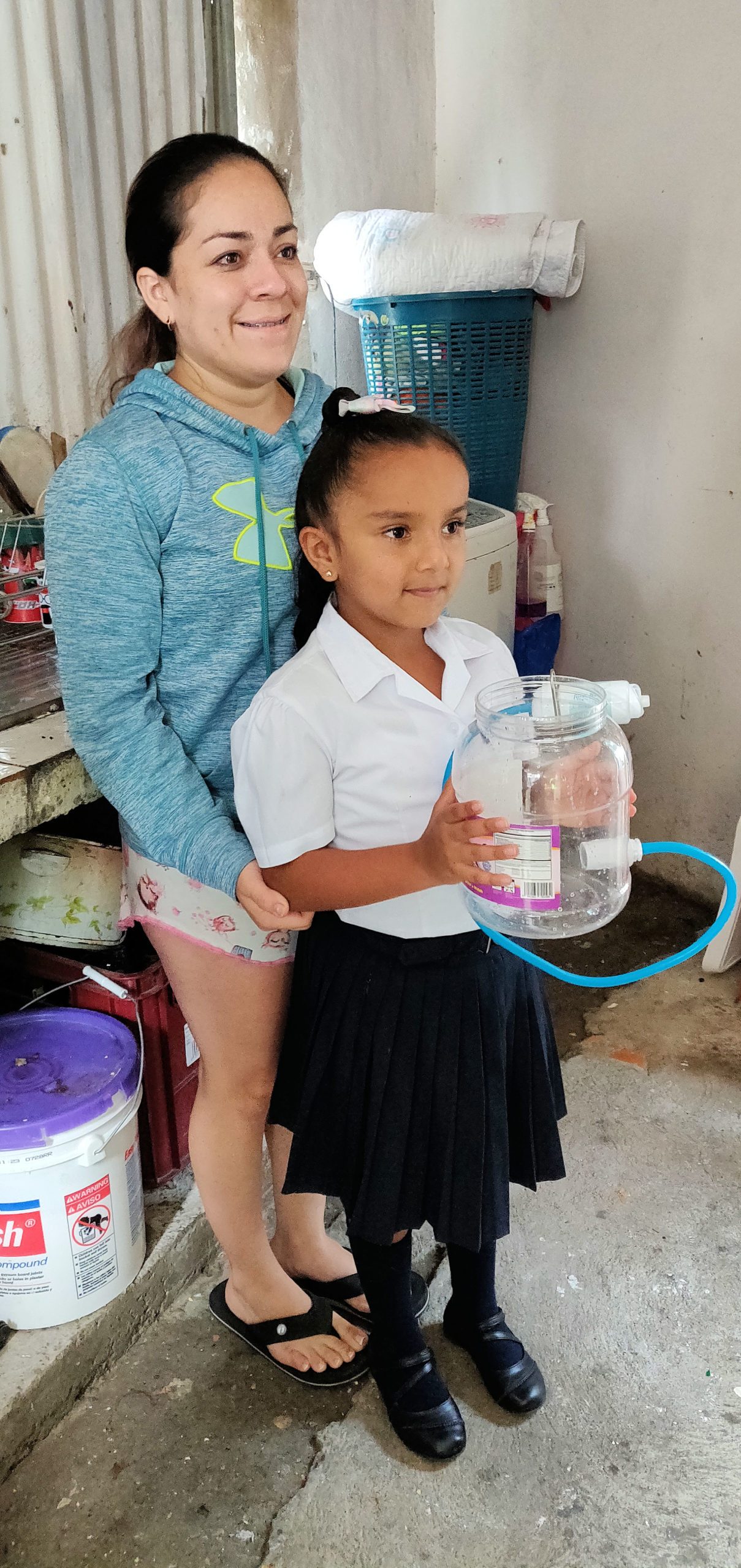 he problem isn’t always a lack of pumps, though. Short-term missions teams, for example, often install really nice pumps for rural communities. But, inevitably, the pumps eventually wear out and break. By then the missions team is long gone, leaving the repair of the pumps to communities who haven’t been prepared with access to spare parts, tools, and the skills to fix them.
he problem isn’t always a lack of pumps, though. Short-term missions teams, for example, often install really nice pumps for rural communities. But, inevitably, the pumps eventually wear out and break. By then the missions team is long gone, leaving the repair of the pumps to communities who haven’t been prepared with access to spare parts, tools, and the skills to fix them.
“Pumps will sit there, broken, and likely never get repaired,” he said. “So, there are literally thousands of broken hand pumps all over the developing world. It’s really sad. On the other hand, if the people can build a pump themselves, then they can repair it themselves. That gives it a virtually indefinite lifetime, and that’s what I aim for.”
After spending seven years in Bolivia, Peters, his wife and his kids moved back to the States. He eventually took a position working at the Institute for Biblical Community Development (IBCD) in Arkansas, which was initially associated with John Brown University. He also mentored senior mechanical engineering students on how to build vehicles from scratch for a competition in Indianapolis. In 2009, the team took first place. They built a basic utility vehicle that is rugged, repairable, and generally suited for local cultures around the world.
“I think God has gifted me with ability to understand a lot of different things, mechanical things, technological things,” he said.
Or as his father put it, he was born, not with a silver spoon in his mouth, but with a ratchet wrench in his hand.
Over the years, he’s also enjoyed sharing the Gospel message with many who are interested. He’s earned that privilege by helping provide solutions to everyday problems. But he feels that, while discussing eternal matters is very important, simply helping has great value, too. He points to William Carey—one of history’s most legendary missionaries and considered the father of modern missions who brought practical inventions like the printing press and the steam engine to South Asia.
“All of those things are part of the mission package because we’re loving people in practical ways like Jesus did,” Peters said. “We’re sharing good news with them, in many ways. Sometimes it’s the cup of cold water or sometimes it’s a water pump, or perhaps a way to pasteurize water so it’s safe to drink by using a solar cooker, or helping them to build a small vehicle using a little diesel engine so that they can get their products to market.”
In 2008 the IBCD became independent of John Brown University, and Peters was prompted to join Paraclete to help support his ongoing ministry. He’s found Paraclete to be a great fit for him, and a wonderful source of ideas, friendships, and encouragement over the years.
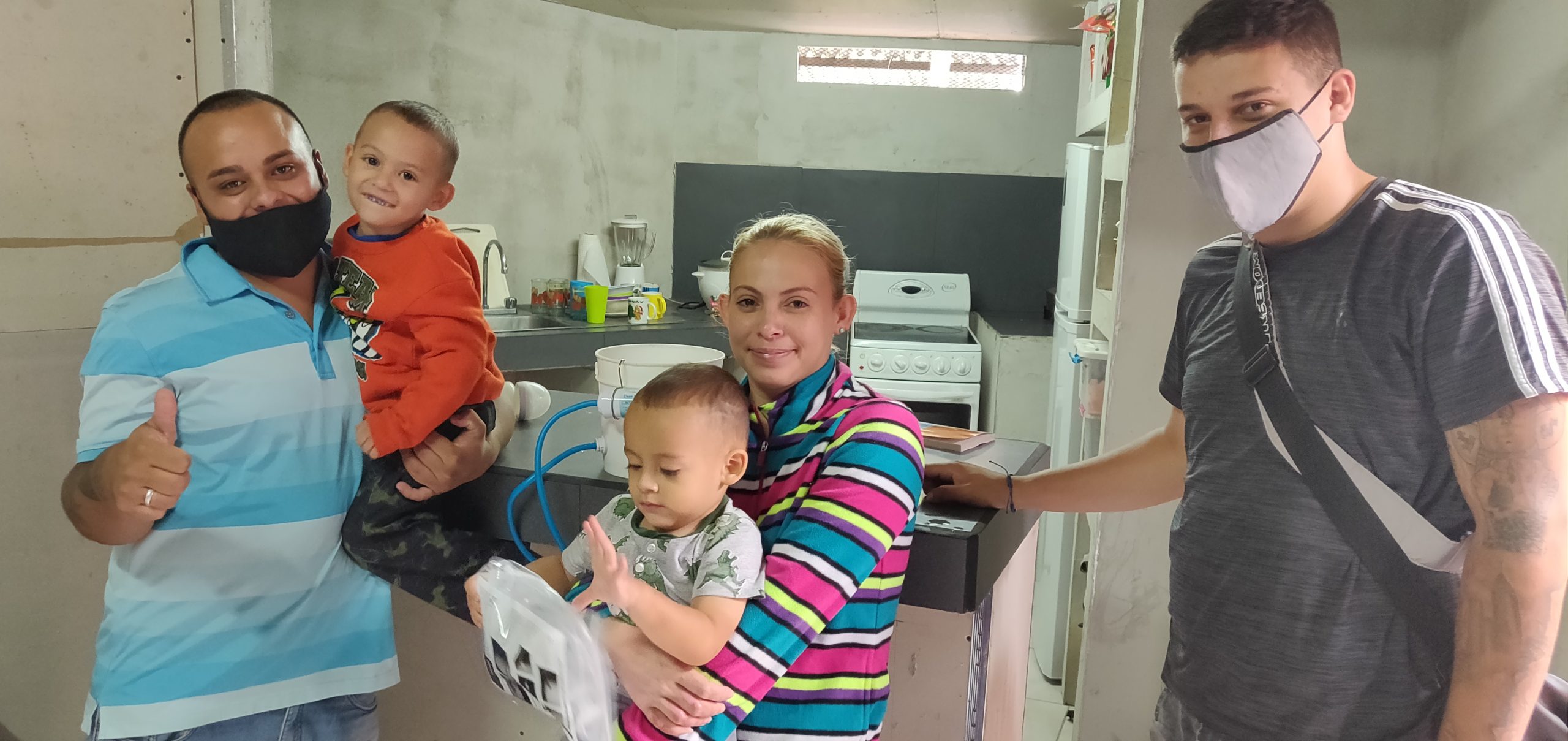 Peters recently celebrated 38 years of marriage to his beautiful wife, Jeannie, and enjoys living near his three children and two grandchildren in NW Arkansas. He’s mostly retired now, except for the occasional trip to Latin America to help install water filters, or the phone call he gets from his church in Arkansas to repair something. Sometimes the call, though, comes for Approtechie from a student somewhere in the world needing help with a senior project, in the spirit of innovation that still excites him.
Peters recently celebrated 38 years of marriage to his beautiful wife, Jeannie, and enjoys living near his three children and two grandchildren in NW Arkansas. He’s mostly retired now, except for the occasional trip to Latin America to help install water filters, or the phone call he gets from his church in Arkansas to repair something. Sometimes the call, though, comes for Approtechie from a student somewhere in the world needing help with a senior project, in the spirit of innovation that still excites him.
“They want to build one of my Stirling engines,” he said, “and make some improvements.”
To donate or learn more about Paraclete Associate Cliff Peters’ ministry, visit: https://www.paraclete.net/associate/cliff-peters/.

